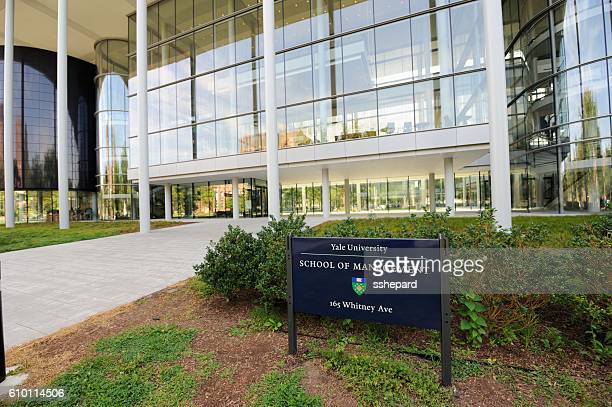
The Waste Management Specialist is responsible for developing project schedules and making service recommendations. In partnership with the National Account Manager, this position develops client relationships and new program initiatives. The Waste Management Specialist works as a team member and recruits associates to attain professional standards. They also coordinate with the National Account Manager to ensure that clients are getting the best possible service from the company. This position oversees projects, and also leads project teams.
Jim Bentley
Advanced Disposal National Accounts, a complete waste management company, is the commercial division. Jim Bentley will be responsible in developing relationships with prospective clients and strategic vendors partners. He will also be responsible for business development and partnerships with other companies from the company's network of more than 71,000 environmental service providers in North America. Bentley has over 21 years' experience in the solid-waste industry, most recently as a senior manager at Green Leaf Compaction.
Ashish Sharma
Senior manager of digital for Waste Management, Ashish Sharma leads digital solutions and technology teams in the company's Asset Management business unit. He is also responsible for the digital team involved in New York's Marine Transfer Station. In 2014, he joined Waste Management. Prior to joining Waste Management, he was a senior leader at Deloitte & Touche, LLC and IBM. He has 16 years of experience working in the technology industry.
Sharma has managed a number of unique projects throughout his tenure at Waste Management. His recent experience has included working on New York's marine transfer station, which supported the company's $3.3 billion contract with the city's Department of Sanitation. In addition, Sharma has been awarded the Waste360 40 Under 40 award. This honor highlights his leadership and innovative approach to waste management. Ashish Sharma has received numerous industry awards. This includes the prestigious Waste360 "Best new product" award.

FAQ
What is TQM exactly?
The industrial revolution led to the birth and growth of the quality movement. Manufacturing companies realized they couldn't compete solely on price. If they wanted to stay competitive, they needed to improve their quality and efficiency.
Management developed Total Quality Management to address the need for improvement. It focused on all aspects of an organisation's performance. It included continual improvement processes, employee involvement, customer satisfaction, and customer satisfaction.
What is Six Sigma and how can it help you?
It's a method for quality improvement that focuses on customer service as well as continuous learning. The goal is to eradicate defects through statistical techniques.
Motorola's 1986 efforts to improve manufacturing process efficiency led to the creation of Six Sigma.
This idea quickly spread throughout the industry. Today, many organizations use six sigma methods for product design, production and delivery.
What is the best way to motivate your employees as a manager?
Motivation can be defined as the desire to achieve success.
You can get motivated by doing something enjoyable.
You can also be motivated by the idea of making a difference to the success and growth of your organization.
For example: If you want to be a doctor, you might find it more motivating seeing patients than reading medical books all day.
A different type of motivation comes directly from the inside.
One example is a strong sense that you are responsible for helping others.
Maybe you like working hard.
Ask yourself why you feel so motivated.
Then, consider ways you could improve your motivation.
What are the 4 major functions of management
Management is responsible of planning, organizing, leading, and controlling people as well as resources. It also includes developing policies and procedures and setting goals.
Organizations can achieve their goals through management. This includes leadership, coordination, control and motivation.
The four main functions of management are:
Planning - Planning involves determining what needs to be done.
Organizing is the act of deciding how things should go.
Directing - This refers to getting people follow instructions.
Controlling – This refers to ensuring that tasks are carried out according to plan.
How can we create a successful company culture?
A positive company culture creates a sense of belonging and respect in its people.
It is founded on three basic principles:
-
Everybody can contribute something valuable
-
People are treated with respect
-
There is mutual respect between individuals and groups
These values are reflected in the way people behave. They will treat others with respect and kindness.
They will respect the opinions of others.
These people will inspire others to share thoughts and feelings.
In addition, the company culture encourages open communication and collaboration.
People feel free to express their views openly without fear of reprisal.
They are aware that mistakes can be accepted if they are treated honestly.
Finally, the company culture promotes honesty and integrity.
Everyone understands that the truth is always best.
Everyone understands there are rules that they must follow.
People don't expect special treatment or favors.
What are the most important management skills?
Business owners need to have management skills, no matter how small or large they may be. They include the ability to manage people, finances, resources, time, and space, as well as other factors.
Management Skills are also needed when you're setting goals and objectives, planning strategies, leading teams, motivating employees, resolving problems, creating policies and procedures, and managing change.
You can see that there are many managerial duties.
Statistics
- The average salary for financial advisors in 2021 is around $60,000 per year, with the top 10% of the profession making more than $111,000 per year. (wgu.edu)
- This field is expected to grow about 7% by 2028, a bit faster than the national average for job growth. (wgu.edu)
- Hire the top business lawyers and save up to 60% on legal fees (upcounsel.com)
- As of 2020, personal bankers or tellers make an average of $32,620 per year, according to the BLS. (wgu.edu)
- 100% of the courses are offered online, and no campus visits are required — a big time-saver for you. (online.uc.edu)
External Links
How To
How can you apply 5S to your office?
Your first step in making your workplace more efficient and productive is to organize everything. A tidy desk, a clean room and a well-organized workspace will help everyone be more productive. To ensure space is efficiently used, the five S's (Sort Shine, Sweep Separate, Store and Separate) are all essential. We'll be going through each step one by one and discussing how they can all be applied in any environment.
-
Sort. You can get rid of all papers and clutter, so you don’t waste time looking for what you need. This means that you should put things where they are most useful. If you frequently refer back to something, put it near the place where you look up information or do research. Also, consider whether you really need it. If it isn't useful, get rid!
-
Shine.Keep your belongings neat and orderly so that you spend less time cleaning up after yourself. Anything that could cause harm or damage to others should be thrown out. Find a safe way to store pens that you don't want anyone else to see. A pen holder is a great investment as you won't lose your pens.
-
Sweep. To prevent dirt buildup on furniture and other items, clean them regularly. To ensure that surfaces are clean and as neat as possible, you might consider investing in dusting equipment. You can also set aside an area to sweep and dust in order to keep your workstation clean.
-
Separate. When you are ready to dispose off your trash, it is a good idea to separate it into bins. You can dispose of your garbage easily by placing trash cans strategically around the office. Place trash bags next to each trash can to take advantage of the location.